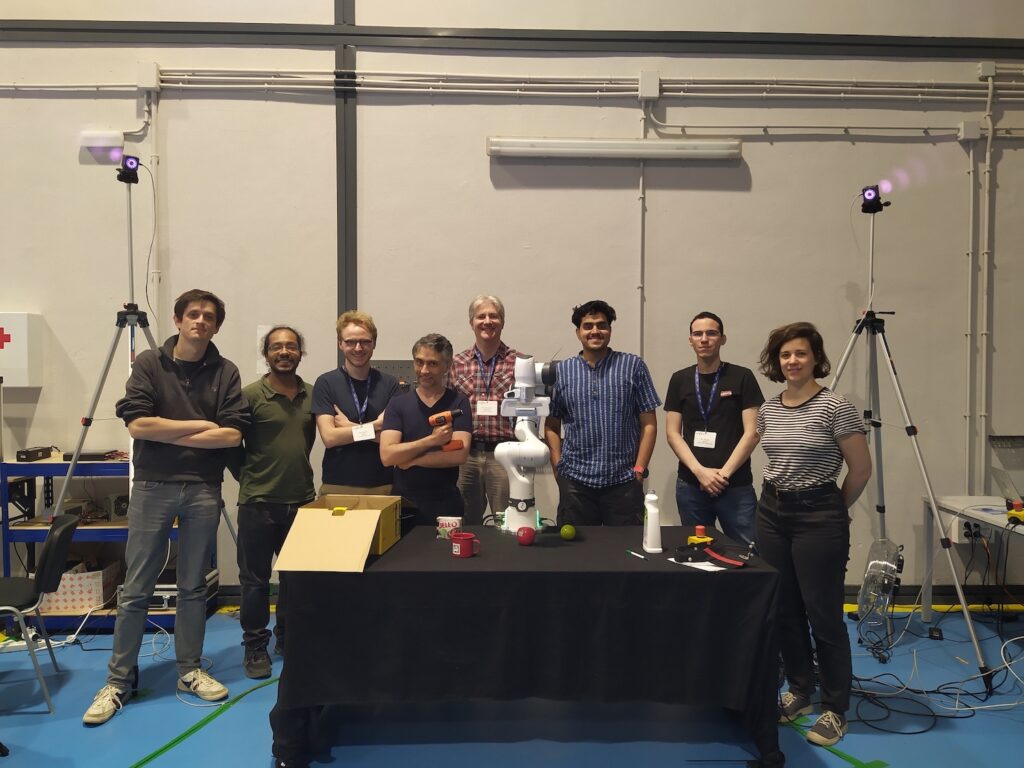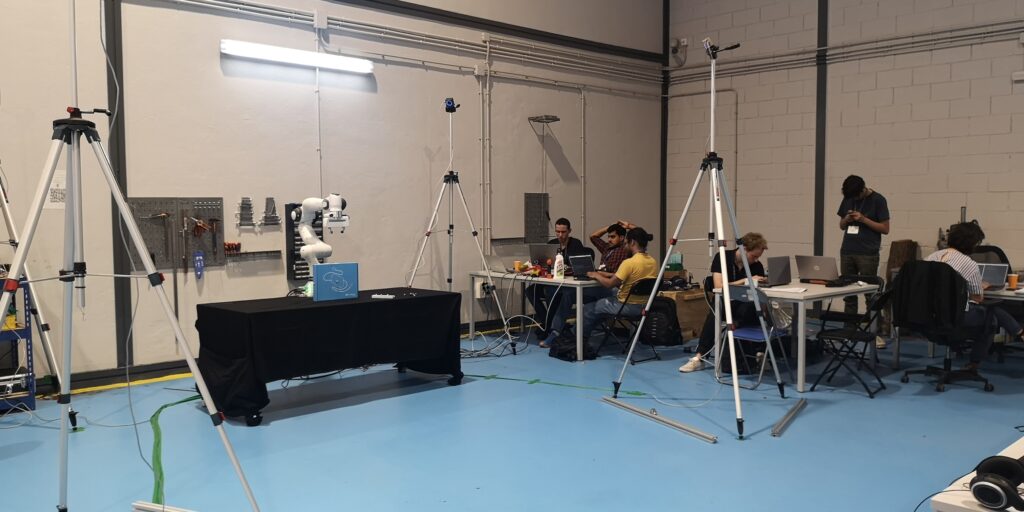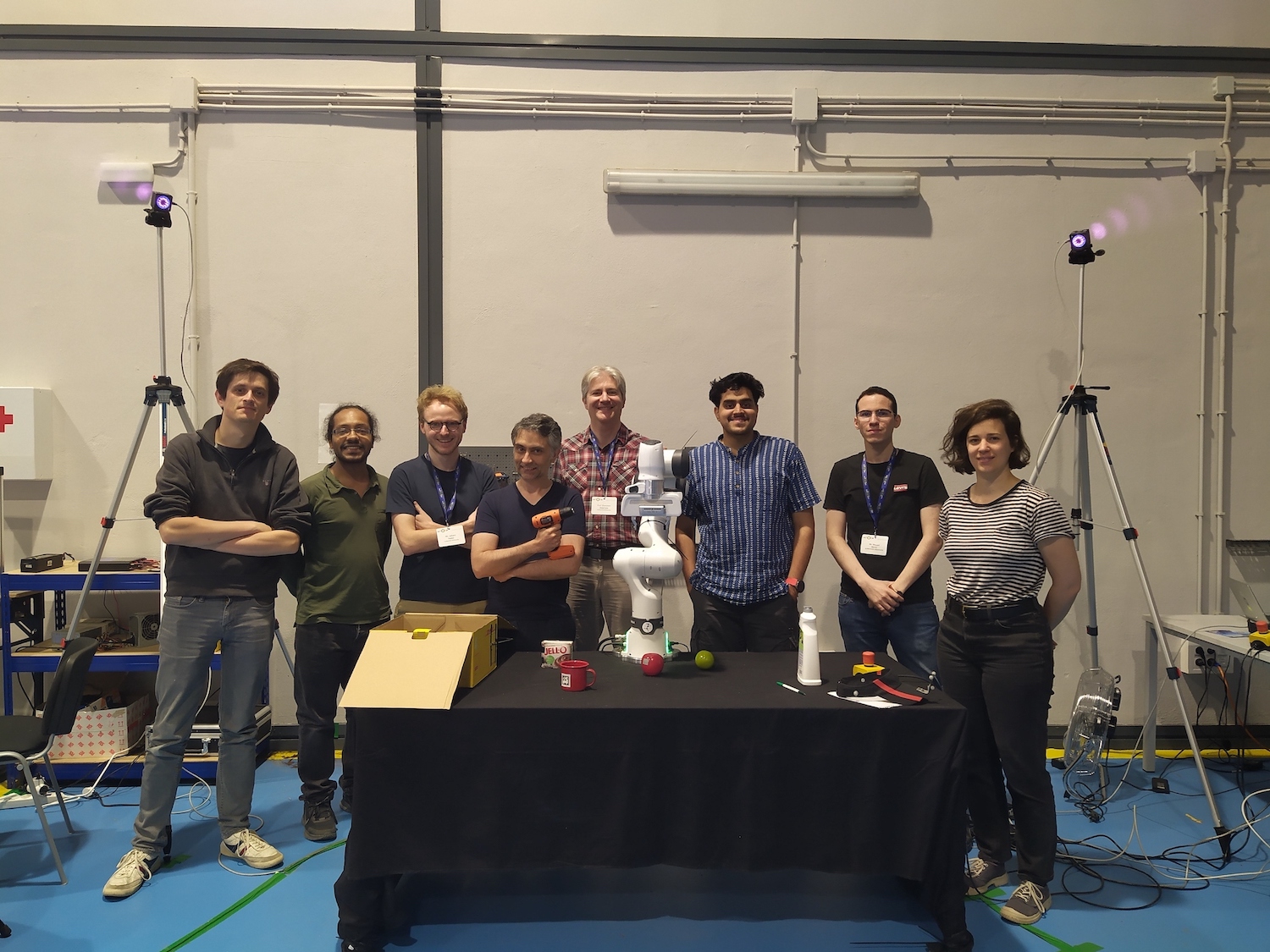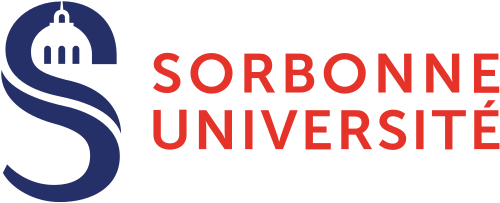In May 2023, ISIR took part in the first meeting of the euROBIN (European ROBotics and AI Network) network of excellence. Organised by the University of Seville, the project partners came together for an entire week devoted to robotics.
From 15 to 19 May, more than 150 participants from the 31 euROBIN partner institutions came together for an event to share their knowledge and promote improvements in the field of AI-based robotics. The week was punctuated by a variety of scientific activities, including conferences, workshops and tutorials on the four fundamental scientific topics of the European project: interaction with the environment, transfer of learned knowledge, transferable representation of knowledge and human-centred transfer.
Working together in an innovative framework
During the event, hackathons were organised where the teams of researchers contributing to the project were able to tackle the euROBIN challenges together. This innovation competition was an opportunity to demonstrate new performances of robotic systems. ISIR members involved in the European project took part.


euROBIN: A European network of excellence in robotics
The euROBIN (European ROBotics and AI Network) project is an initiative funded by the European Union to create a network of excellence in robotics and artificial intelligence (AI). This network brings together leading researchers, institutions and industrial partners in the field of robotics and AI, with the aim of developing innovative European technologies and solutions.
The vision of euROBIN is to create a European ecosystem of robots capable of sharing their data and knowledge, exploiting their diversity to jointly learn to perform an infinite variety of tasks in human environments. To achieve this, the project proposes a three-pronged strategy:
- Leading experts from the European robotics and AI community will address transferability issues in key scientific areas.
- The relevance of scientific results will be demonstrated in promising fields of application, with a considerable impact on industry, innovation and civil society in Europe.
- Finally, euROBIN will create a sustainable network of excellence to foster exchange and inclusion. Software, data and knowledge will be exchanged via the EuroCore repository, designed to become a central platform for robotics in Europe.
The scientific objectives of euROBIN
The euROBIN project aims to make significant progress in four key scientific areas:
Interaction with the environment: one of the major challenges in robotics is to enable robots to interact effectively and safely with their environment. This includes perception, navigation, object manipulation and cooperation with humans.
Transfer of learned knowledge: robots must be able to learn new skills and transfer them between different tasks, robots, research groups and fields of application. The euROBIN project focuses on improving the transferability and reusability of cognition-based robotic solutions.
Transferable knowledge representation: to facilitate the transfer of knowledge between robots and humans, it is essential to develop effective knowledge representation methods. Robots must be able to understand and interpret information in a similar way to humans, facilitating communication and collaboration between the two.
Human-centred knowledge transfer: the euROBIN project also aims to develop human-centred knowledge transfer methods, enabling robots to learn directly from humans and vice versa. This includes learning by imitation, learning by demonstration and learning by verbal explanation.
euROBIN’s areas of application
The euROBIN project will demonstrate the relevance of its scientific results in four promising areas of application:
Personal robots: personal robots are designed to perform tasks in our everyday environment, such as receiving a parcel, filling a fridge or emptying a dishwasher. Designing robots capable of such feats poses a number of technical challenges, such as voice recognition, object manipulation and adaptation to the material being handled.
Industrial robotics: industrial robotics is a key area for the future of production and distribution. Robots are becoming increasingly efficient at tasks such as handling objects, transporting heavy loads and detecting high-risk situations. The euROBIN project aims to develop innovative robotic solutions to improve the efficiency and safety of industrial processes.
Robotics for the circular economy: the euROBIN project is also looking at the use of robotics to promote the circular economy and sustainable consumption. Robots can play a key role in reducing waste, optimising the use of resources and promoting the reuse and recycling of materials.
Robots for quality of life and well-being: robots can also help to improve the quality of life and well-being of individuals, particularly the elderly and disabled. The euROBIN project will develop robotic solutions capable of assisting people in their daily activities, providing emotional support and promoting autonomy and independence.
The partners in the euROBIN project
The euROBIN network includes 31 partners from 14 countries, with leading research institutions and industrial partners in the field of robotics and AI. They include the Institute for Robotics and Mechatronics of DLR (the German Aerospace Research Centre), which is coordinating the project, Inria, CNRS, ISIR of Sorbonne University/CNRS, the Technical University of Munich, ETH Zurich, KTH Stockholm and Frauenhofer.
Link to the euROBIN European project website.
Scientific contact at ISIR: Stéphane Doncieux, Professor.



